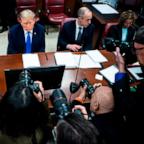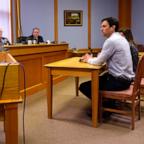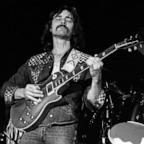What Does Back to School Mean for Homeschoolers
Aug. 30, 2005 — -- For most, "back to school" season conjures up vivid memories: a fresh notebook, the carefully chosen first-day outfit, sizing up the teacher, seeing friends, and figuring out where you stand in the new classroom pecking order.
But what about the increasing number of children being educated at home? The U.S. Department of Education estimates there were 1.1 million home-schooled kids in 2003, and the numbers have been steadily growing.
Are these kids being deprived of a uniquely American rite of passage? Not necessarily, say many involved in the movement.
Like the other home-schooled kids interviewed for this story, 14-year-old Ava Lowrey has no desire to go back to public school.
"I don't miss it," she said. "I enjoy working at my own pace. In public school, you're not able to do that."
Ava's mother, Tamara Knowles, of Alexander City, Ala., began home-schooling both of her children when they were in seventh grade, primarily because she wanted them to get a higher-quality education than she felt they could get at the local public school.
Knowles, 36, was herself home-schooled at a time when it was virtually unheard of. Her father was an Assembly of God minister and the family moved frequently.
When she was ready to enter 10th grade, Knowles decided to go back to public school. By the time she was entering her senior year, though, she was ready to return home. "I felt like I was spinning my wheels and wasting my time," she said.
But Knowles said her kids are free to go back to school anytime. "The option is open to my kids. I don't think public school is evil," she said.
The common perception of home-schooling families is that they are conservative Christians trying to escape secularism in public schools, but Knowles said the opposite was true for her family.
"In the South, the political atmosphere is very conservative," Knowles said. "There were times when public school teachers would make a lot of political comments that made me uncomfortable."
Dr. Michael Apple, a professor of educational policy at the University of Wisconsin-Madison who has studied home schooling extensively, says that secular home-schoolers like Knowles and her kids are a growing population, but still a tiny group.
But whether home-schoolers are evangelical Christian conservatives or secular and liberal, Apple believes home-schoolers are cutting themselves off from people with different beliefs and backgrounds.
Home-schooled kids, he says, are missing out on the more subtle lessons that public schools teach students about being American citizens and interacting in a diverse society.
"Public schools are important to democracy," Apple said. "They teach people how to work with others across political, religious, class and racial lines. It would be a disaster to give up on that."




